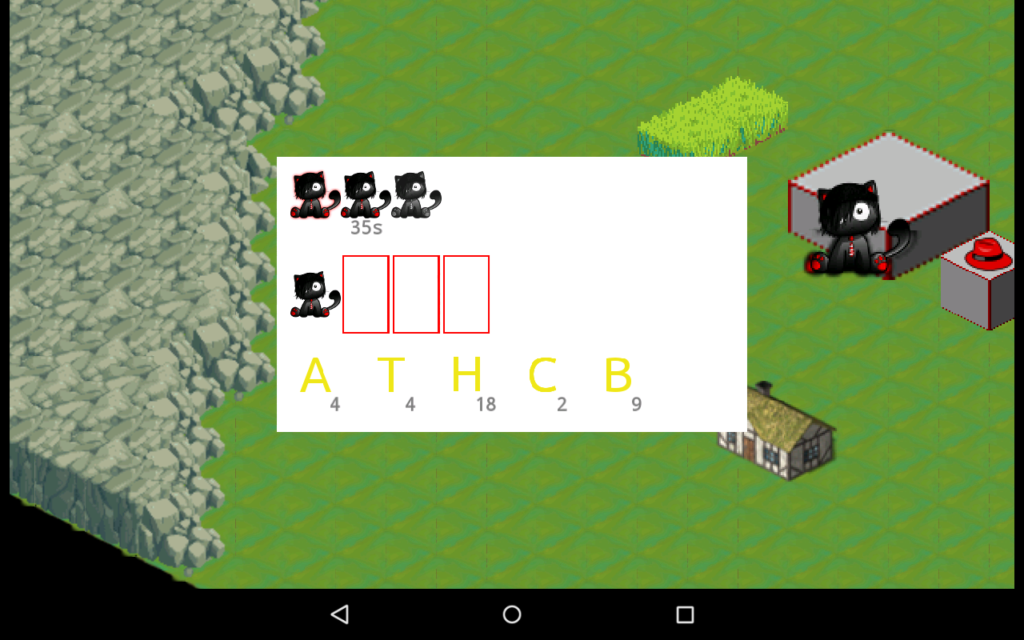Hey everyone, our first Beta release is officially out! If you joined our Alpha testing through the Play Store already, you should be getting the update automatically. If you haven’t joined yet, you can do so by clicking the image below:
 What’s new?
What’s new?
We’ve made the marketplace much smarter, and reactive to the player. To do this we introduced purchaser “profiles” that choose the requested items and their quantity based on specific goals, such as helping the player get rid of excess inventory items, gathering letters and words they haven’t used very often, or pushing them to complete the current level and move on to the next.
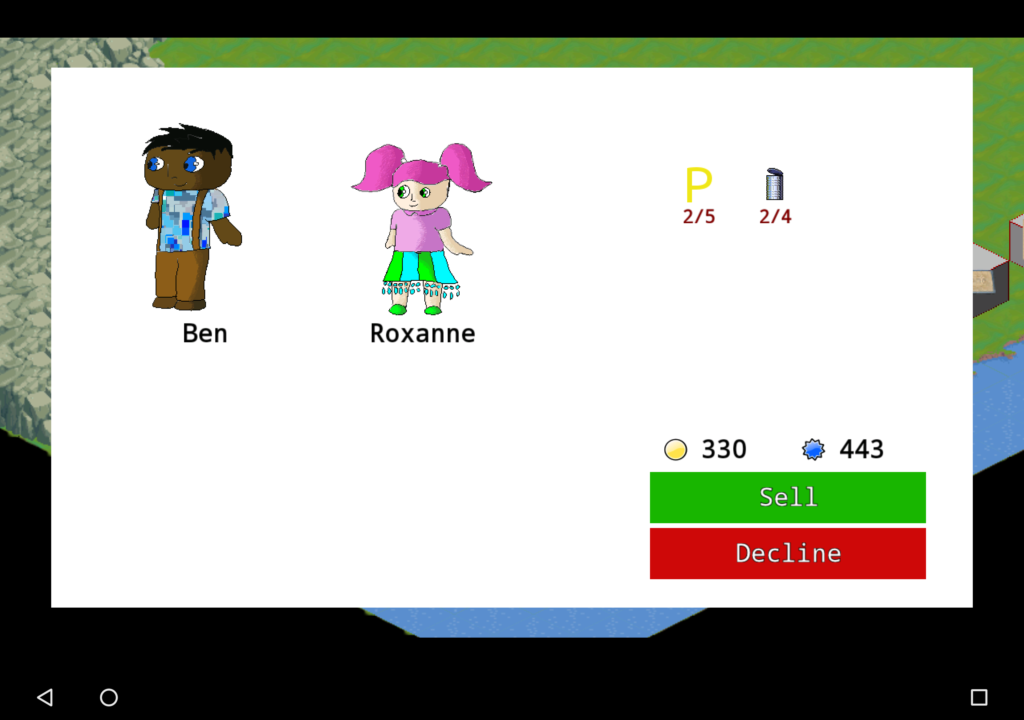
Speaking of new levels, there are now two new dialogs you will see. The first is displayed at the start of each new level, showing you what new items have been unlocked for you, as well as how many coins and points you’ve earned by reaching that level. The second, which can be activated by tapping the level’s star icon in the default view, will show you what items (and how many of them) you need to gather before you can move on to the next level.
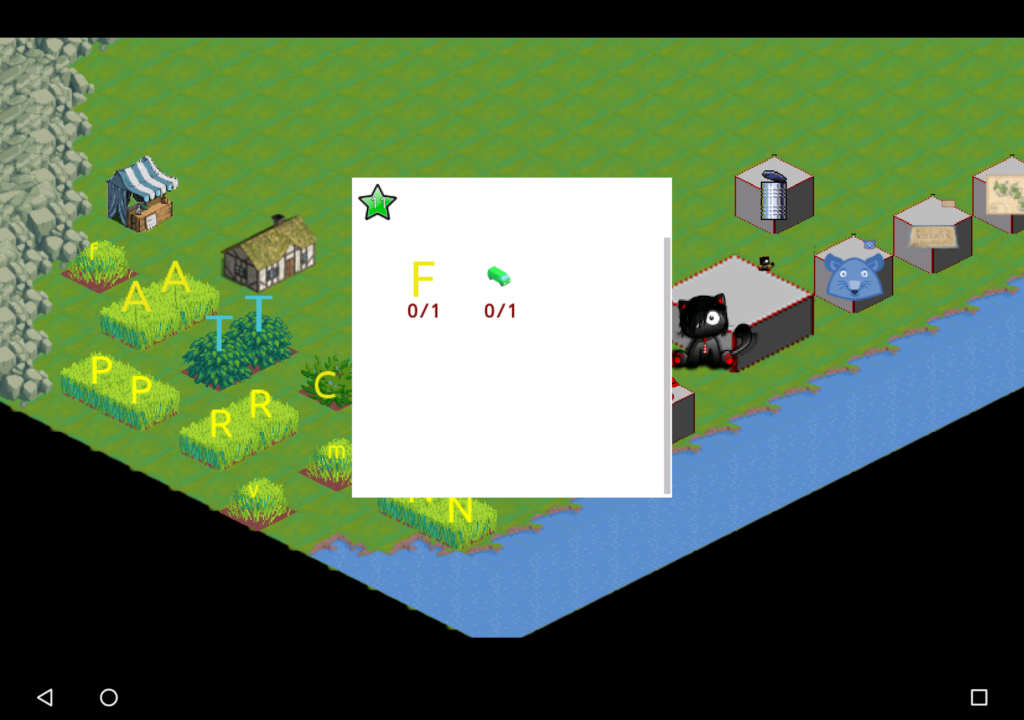
The first two mini-games have also arrived. In the first you must match a series of word images to the corresponding spelling of the word. In the second it’s reversed and you must match a spelled word with the image it represents. If you can make it through getting fewer than 3 wrong, you win one of the words you correctly matched, plus some extra coins. But, win or lose, you have to wait a while between playing, so be sure to pay attention! Many more games are planned, and you will be able to give different levels of difficulty to them to keep it challenging.
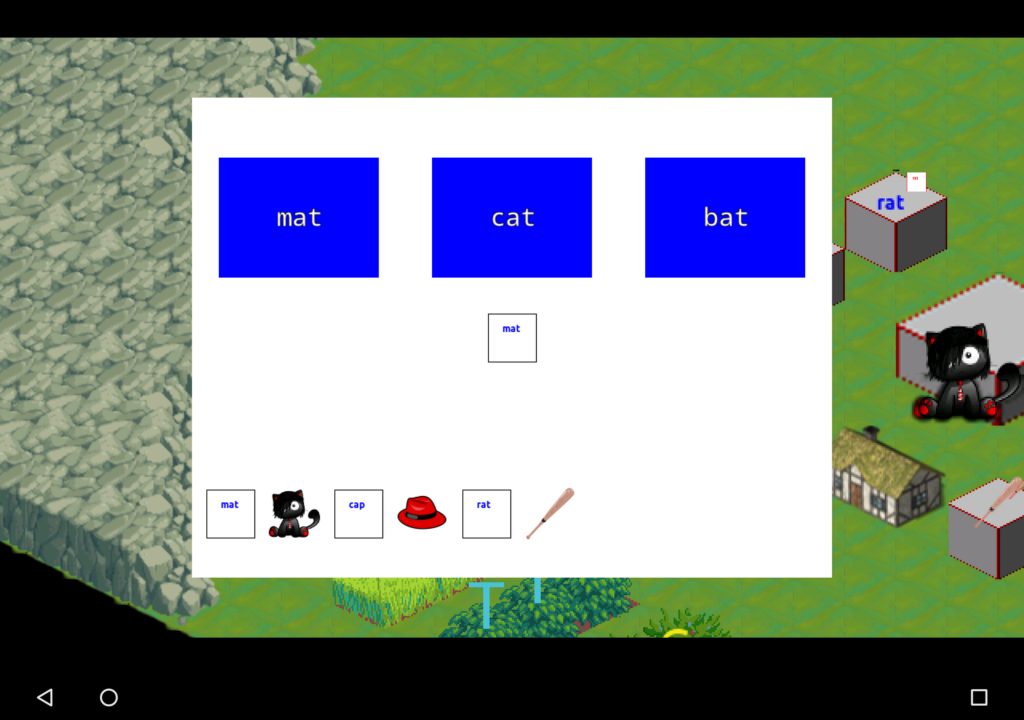 There have also been a number of smaller UI/UX changes that make the game play a little smoother. For starters, any scrollable elements will now display a scrollbar both to indicate that it’s scrollable, and to show your scroll position. All HUD displays can now be closed by tapping on an area that shows the background map, while play-testing we found that this was what the players expected and they tried to do it without even thinking, so we changed it to match. You’ll also notice that when you tap a letter or work that’s building, the indicator that appears will tell you the actual time remaining, rather than the percentage, which is another thing play-testing proved to be the expectation. Finally, we’ve added some more placeholder art to help get you through the first several levels.
There have also been a number of smaller UI/UX changes that make the game play a little smoother. For starters, any scrollable elements will now display a scrollbar both to indicate that it’s scrollable, and to show your scroll position. All HUD displays can now be closed by tapping on an area that shows the background map, while play-testing we found that this was what the players expected and they tried to do it without even thinking, so we changed it to match. You’ll also notice that when you tap a letter or work that’s building, the indicator that appears will tell you the actual time remaining, rather than the percentage, which is another thing play-testing proved to be the expectation. Finally, we’ve added some more placeholder art to help get you through the first several levels. 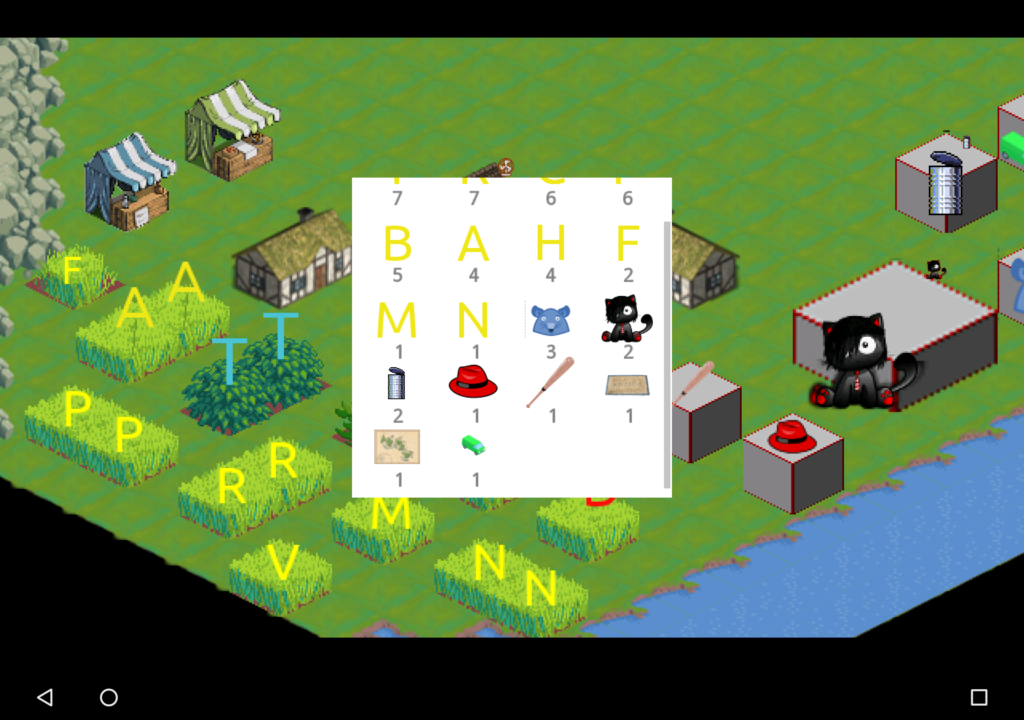 There has also been a major change to the locales. A new set of tools has been developed to help locale authors get started. All you need to provide is an alphabet and a list of words, and these tools will generate a working locale manifest, complete with levels and progressively increasing values for cost and build time for your letters and words. You can even generate placeholder images for both letters and words so you can play your locale right away. These tools will continue to be developed, and will be the used for both our English and Kiswahili levels.
There has also been a major change to the locales. A new set of tools has been developed to help locale authors get started. All you need to provide is an alphabet and a list of words, and these tools will generate a working locale manifest, complete with levels and progressively increasing values for cost and build time for your letters and words. You can even generate placeholder images for both letters and words so you can play your locale right away. These tools will continue to be developed, and will be the used for both our English and Kiswahili levels.
Beta 2
We’re now hard at work on Beta 2, which is due out at the end of September. You can try Beta 1 now from the Play Store, and you will be automatically updated to Beta 2 when it comes out. As always, feedback, bug reports, and contributions are always welcome!

